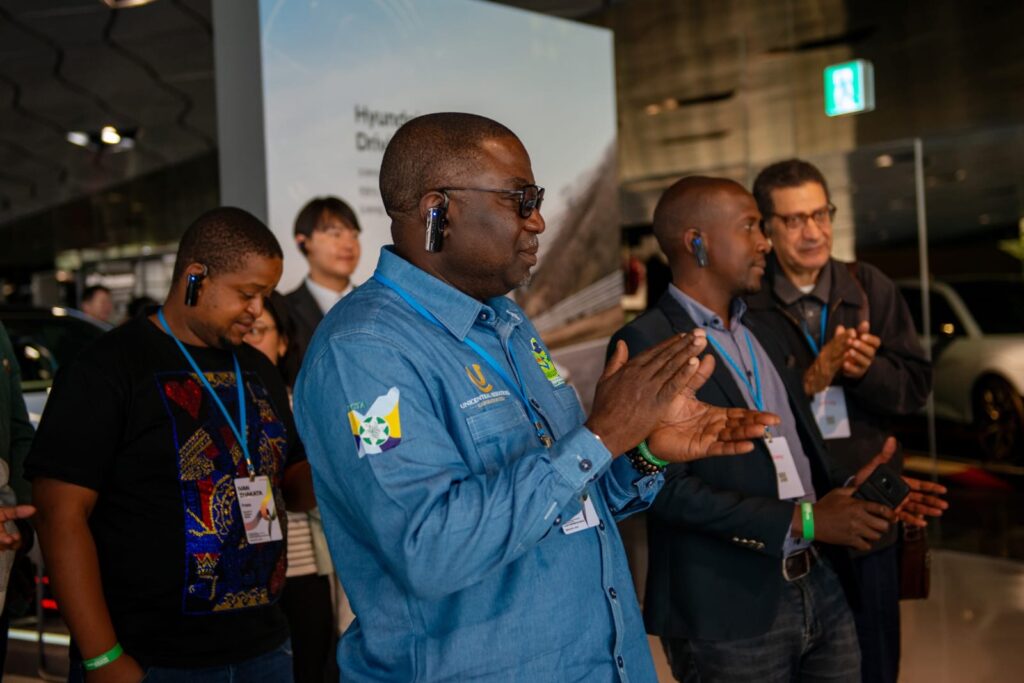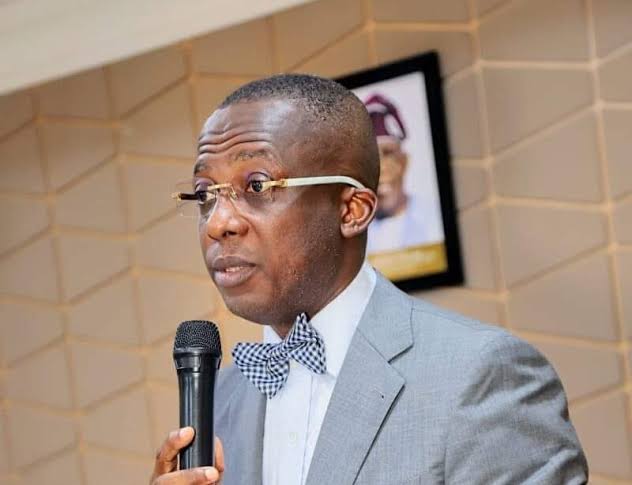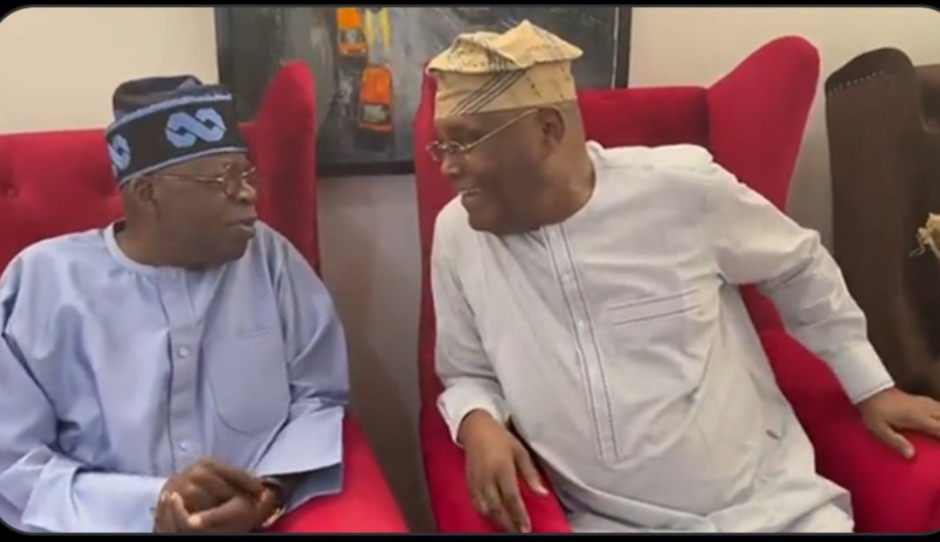Africa And The Imperative Of South Korea’s Development Model
TUNDE RAHMAN

To say the economy of the Republic of South Korea is a developed and strong economy is to say the obvious. South Korea’s economy had been vastly developed, and its economic structure radically transformed since after World War II in 1945 and the Korean War in 1953. The Korean War was a war of attrition between two brother-nations – North and South Koreas – accentuated by the Cold War era, and would appear not to have fully abated up till now.
However, South Korea is not just a developed nation today; it is also a regional power. According to a report titled “The Growth Report: Strategies for Sustained Growth and Inclusive Development,” a World Bank publication, authored in 2008 by the Commission on Growth and Development, 13 countries sustained 7% + annual growth for 25 years or more since 1950. Six countries among them joined the high-income group. They are Japan, Hong Kong, Singapore, Taiwan, Malta, and South Korea. Prominent among the factors listed in the report for sustained development are stable macroeconomic policies exemplified in sound public finance and low inflation, smooth operation of the market mechanism, high saving and high investment rates as well as knowledge infusion and overseas markets.
South Korea’s economic growth has been widely described as a miracle on the Han River. That economic accomplishment allowed the country to join the Organisation for Economic Cooperation and Development and the G20. Truth, however, is the South Korean achievement is not a miracle. It is a result of deliberate planning and execution of development strategies and sustained efforts at development. How was the Republic of South Korea able to achieve this feat with the destruction and devastation occasioned by the war with North Korea? Lacking in natural resources, the main vehicle for the economic development of that country is state-led industrialisation. Professor Taejong Kim of Korea Development Institute (KDI), in his presentation before a team of editors recently in South Korea, said the fast growth was sustained by inclusive policy measures – inclusive and sustained investments in human capital, natural capital and social capital. These measures, according to him, were designed to empower vulnerable communities and individuals.
I have provided this important background in order to underscore the huge success story that is South Korea today. The country’s economy is ranked the 3rd largest in Asia and the 11th biggest in the world by GDP. Goldman Sachs in “Beyond The Brics: A look at The ‘Next 11’ ” listed South Korea in the group of Next Eleven countries as having the potential to play a dominant role in the global economy by the middle of the 21st century.
The massive development in South Korea was apparent to this writer during a recent visit to the country. Wherever you turn in Seoul, the capital city, the numerous manifestations of the development stare you in the face. The key development indicators dot the landscape. I was in Seoul on the invitation of the Korea International Broadcasting Foundation called Arirang to take part in a programme geared towards enhancing exchange and cooperation between South Korea and Africa. The visit took us (me and some 11 other African journalists and government media managers) to many important places. We had interactions with several top government officials and private business leaders. We were at the KDI Global Knowledge Exchange and Development Centre (GKEDC) and Korea Railway Traffic Control Centre.
We participated in a dialogue for sustainable development and economic cooperation between Korea and Africa as well as in the high-level policy workshop on rural development administration. We gained valuable insights into the country’s model for agriculture and rural development through an interaction with the Director-General of Korea Rural Development Foundation, Kim Hwang-Yong, who spoke about the role of the foundation in addressing the issue of poverty and food sufficiency. According to him, the foundation helps to develop new technologies for agric development, which it transfers to farmers in the country.
Believing the country’s technology would be good for Africa, he said the RDA had been working with many African countries to ensure, among other things, increased rice production, disclosing also that the foundation presently has 26 varieties of rice in eight countries of Africa. We also had a meeting with the Executive Vice President Korean Foundation, Mr. Rhee Jong Kook, and another high-level meeting at the South Korea’s Ministry of Foreign Affairs where we had a useful conversation on South Korean foreign policy options with the Deputy Foreign Minister, Chung Byung-won.
We undertook an excursion of the Lotte World Tower and the Hyundai Plant in Goyang where that company’s vehicles that are available in the Nigerian markets are being produced.
Perhaps a more remarkable part of the visit was the tour of the Demilitarised Zone (DMZ), Imjingak Pyeonghwa Nuri Park and Third Tunnel. Established under the provisions of the Korean Armistice Agreement in 1953, the DMZ is the region on the Korean Peninsula that demarcates North Korea from South Korea. It is meant to serve as a buffer zone between the two countries. But there is still palpable tension around the zone as North Korea has reportedly dug up to three tunnels in a bid to violate the agreement and invade South Korea. We toured the South Korea end of the zone, and with heads bent, went inside the Third Tunnel to the very end. The tour of the tunnel is not for the faint-hearted. Some in the team, this writer not inclusive, declined to make the tour. On the whole, it was a helpful, illuminating and extremely exciting and worthwhile visit.
African countries, including Nigeria, have a lot to learn from South Korea, and interestingly, Nigeria and South Korea have something in common: both are a multi-party democracy with a free market economy and fledging private sector. The Republic of South Korea places a high premium on research and development (R&D) and spends heavily on them. R&D is a key driver of economic growth and industrial development. Like South Korea, Africa, Nigeria, in particular, needs to continue to scale up research and development.
There is also South Korea’s education system, particularly her educated populace, which is largely responsible for the high technology boom and economic development. South Korea maintains increasing enrolment in higher education with special attention paid to Science and Engineering. Meanwhile, the intellectual arm of the country used to power this outstanding growth is the Korea Development Institute. The KDI School of Public Policy and Management offers scholarship at Post-Graduate and PhD levels to African students where they undergo courses to strengthen their capacities and horn their academic skills in order to give back to their societies on their return home. It was at a dinner with some academics and students of the institute that I encountered Abdul Labaran, a Nigerian Master’s degree student of the institution, who commended the scholarship programme. Africa needs to borrow a leaf from the mandate of that institute.
As indicated earlier, South Korea parades incredible economic growth and is today a high-tech industrialized economy. It has received accolades globally for value-added manufacturing and for her hi-tech companies. To aim at achieving this feat, Africa must invest in technology and innovation to enhance technological competitiveness.
Of interest is also the patriotism of the South Korean people. Stories abounded of how many South Korean women sacrificed their trinkets and jewelries during the difficult period in order to power the economy. Over two million people reportedly contributed. This is something that should be emulated in our clime because patriotism fuels growth and development.
Indeed, there are many great examples to talk about in respect of the South Korea story, which Africa can further explore. Interestingly, a summit of Africa and South Korea is underway to offer a veritable opportunity for the exchange of ideas. The summit will also further cooperation and partnership in various areas. Slated for June 4-5, it will offer African countries a window into the huge economic advancement of South Korea. Speaking about the summit, the South Korean Deputy Foreign Minister described it as the biggest international conference to be initiated by the present administration in that country. It is aimed at creating and strengthening cooperation and collaboration with Africa.
“The summit will be mutually beneficial and create long-term partnership between Africa and Korea. Korea seeks to strengthen economic cooperation with Africa, and the summit will offer the best opportunity for Korea to support Africa in enhancing economic growth. Leveraging each other’s comparative advantage will help to advance growth and sustainable development. It will be a win-win for both South Korea and Africa in terms of economic cooperation and partnership,” Byung-won said. Should African leaders attend this important and first-ever summit between Korea and Africa? I think so!
– Rahman is a Senior Presidential Aide








